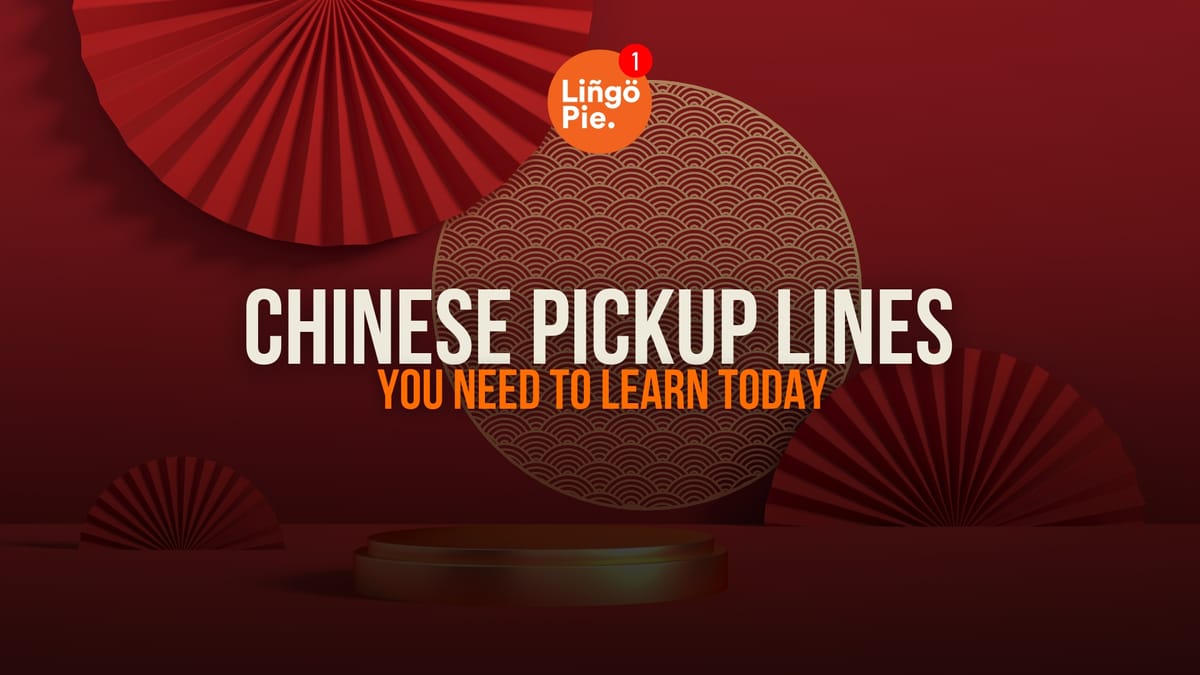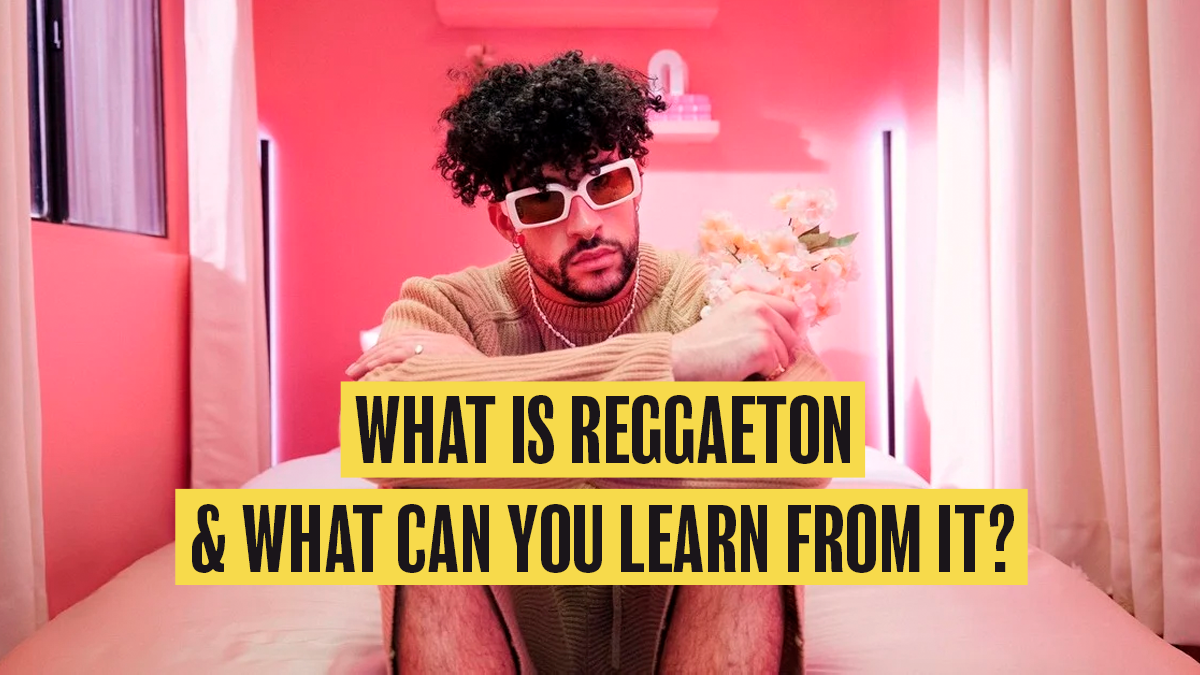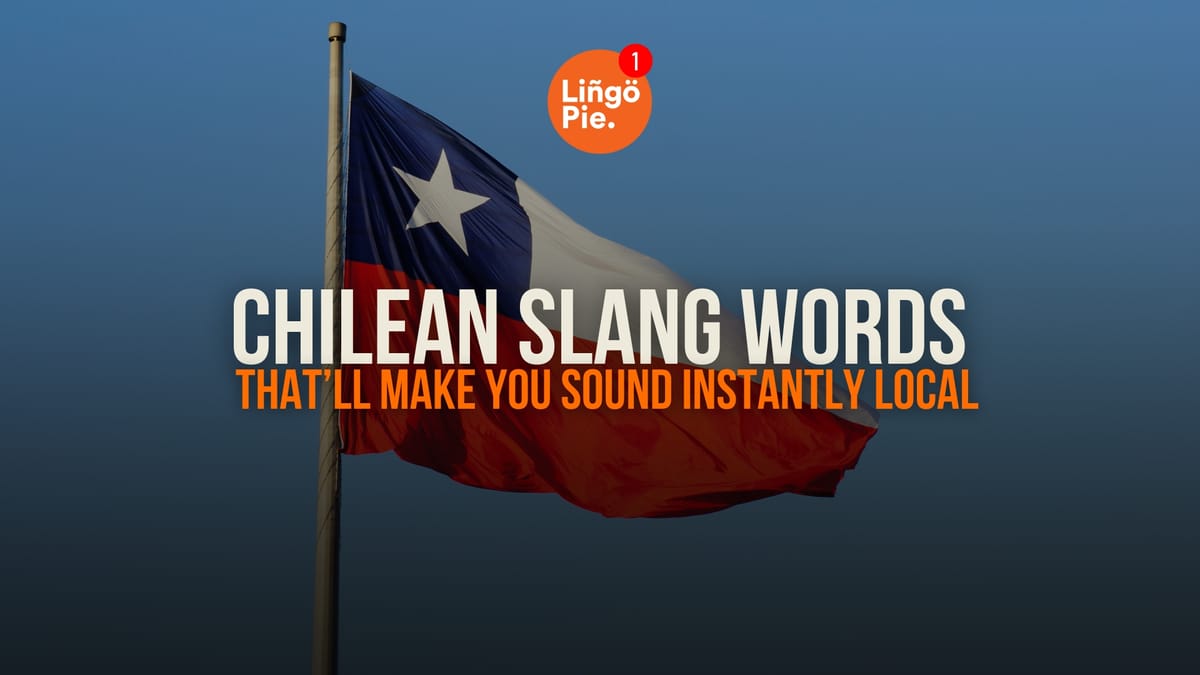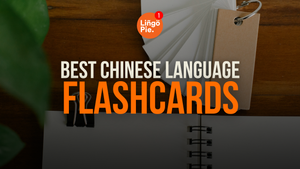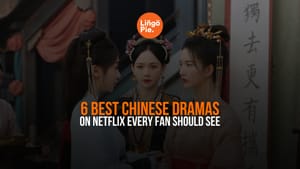Dating in Chinese isn't quite like dating in the West, and I'm not just talking about cultural differences. There's the language barrier to think about, sure, but there's also the question of how you express interest. You might throw out a casual "Hey, you look great today" without much thought in English. In Chinese? Well, the phrasing matters more than you'd think.
That's why in this post, I'll walk you through some of the most popular Chinese pickup lines, along with a handful of useful Chinese love words and compliments that actually sound natural.
- 18 Chinese Love Phrases For Your Next Date
- 6 Best Chinese Horror Movies to Learn Chinese
- Okay In Chinese: 7+ Easy Ways To Say OK [Guide]

Popular Chinese Pickup Lines
Chinese pickup lines are usually built around comparisons or wordplay. You'll also notice a pattern: many start with "你是...吗?" (Nǐ shì... ma?), which means "Are you...?" It's a rhetorical setup that leads into a compliment or playful observation.
你是太阳吗?因为我绕着你转
Nǐ shì tàiyáng ma? Yīnwèi wǒ rào zhe nǐ zhuǎn
"Are you the sun? Because I orbit around you."
You're comparing the person to the sun and saying they're the center of your universe. The verb 绕 (rào) means "to revolve around" or "orbit," which makes the imagery clear and visual. It's romantic without being overly complex—straightforward sentiment that works if you want to be poetic without trying too hard.
你是奶茶吗?因为你是我的最爱,每天都想要
Nǐ shì nǎichá ma? Yīnwèi nǐ shì wǒ de zuì ài, měitiān dōu xiǎng yào
"Are you milk tea? Because you're my favorite and I want you every day."
Milk tea is basically a cultural obsession in Chinese-speaking regions, so comparing someone to it means they're irresistible. The phrase 最爱 (zuì ài) means "favorite" or "most loved," and 每天都想要 (měitiān dōu xiǎng yào) translates to "want you every day."
你是Wi-Fi吗?为什么我一靠近你信号就满格了
Nǐ shì Wi-Fi ma? Wèishéme wǒ yī kàojìn nǐ, xìnhào jiù mǎngé le
"Are you Wi-Fi? Because whenever I'm close to you, my signal is full."
Modern and a bit geeky. The word 靠近 (kàojìn) means "get close to," and 满格 (mǎngé) is "full bars" or "full signal." You're saying that being near them makes everything better.
你有地图吗?我已迷失在你的双眸里
Nǐ yǒu dìtú ma? Wǒ yǐ míshī zài nǐ de shuāngmóu lǐ
"Do you have a map? Because I'm lost in your eyes."
Classic and a bit cheesy. The word 迷失 (míshī) means "lost," and 双眸 (shuāngmóu) is a more literary term for "eyes"—it's more elegant than the everyday 眼睛 (yǎnjīng). This elevated vocabulary makes the line sound more sincere and poetic, though it can come across as over-the-top if you don't commit to it.
你的手真冰,要不要用我的手来取暖?
Nǐ de shǒu zhēn bīng, yào bú yào yòng wǒ de shǒu lái qǔnuǎn?
"Your hands are cold, do you want me to warm them with mine?"
Less of a pickup line, more of a move. The phrase 取暖 (qǔnuǎn) means "to warm oneself," and the structure 要不要 (yào bú yào) is "do you want to or not?"—a gentle way to offer physical contact. It works best in colder weather and feels considerate rather than forward.
你是月亮吗?因为我被你的光芒吸引
Nǐ shì yuèliàng ma? Yīnwèi wǒ bèi nǐ de guāngmáng xīyǐn
"Are you the moon? Because I am drawn to your glow."
Another celestial comparison. The word 光芒 (guāngmáng) means "radiance" or "glow," and 吸引 (xīyǐn) means "attracted" or "drawn to." The moon has softer, more mysterious connotations than the sun, so this line feels more subdued and romantic.
你是咖啡吗?因为你让我精神振奋
Nǐ shì kāfēi ma? Yīnwèi nǐ ràng wǒ jīngshén zhènfèn
"Are you coffee? Because you energize me."
Similar to the milk tea line but with a different vibe. The phrase 精神振奋 (jīngshén zhènfèn) means "energized" or "invigorated." Coffee is associated with alertness and energy, so you're saying the person makes you feel alive. It's slightly more mature than the milk tea comparison.
我不是地球,但是我可以是你的北极星
Wǒ bù shì dìqiú, dànshì wǒ kěyǐ shì nǐ de běijíxīng
"I'm not the Earth, but I can be your North Star."
This one flips the formula—you're offering to be something for them rather than comparing them to something. The North Star (北极星, běijíxīng) symbolizes guidance and constancy. You're saying you'll always be there to help them find their way.
我觉得你这个人不适合谈恋爱,适合结婚
Wǒ juéde nǐ zhège rén bù shìhé tán liàn'ài, shìhé jiéhūn
"I think you're not suitable for dating, you're suitable for marriage."
Bold and direct. The verb 适合 (shìhé) means "suitable for," so you're literally saying they're not right for casual dating (谈恋爱, tán liàn'ài) but perfect for marriage (结婚, jiéhūn). It skips the casual phase entirely and makes your serious intentions clear.
你是什么血型?O型。不,是我的理想型
Nǐ shì shénme xuèxíng? O xíng. Bù, shì wǒ de lǐxiǎng xíng
"What's your blood type? Type O? No, you're my ideal type."
This one's pure wordplay. The character 型 (xíng) means "type," so the setup asks about blood type (血型, xuèxíng), but the punchline switches to "ideal type" (理想型, lǐxiǎng xíng).
How To Give Compliments In Chinese
Compliments in Chinese follow a simple structure: Subject + 很 (hěn, "very") + Adjective. For example, 你很漂亮 (Nǐ hěn piàoliang) means "You're very beautiful." The word 很 softens the statement and makes it sound more natural and less blunt or declarative.
You can also compliment specific things by using 你的 + [noun] + 很 + [adjective], like 你的笑容很好看 (Nǐ de xiàoróng hěn hǎokàn)—"Your smile is very lovely." This structure lets you be specific rather than generic, which makes the compliment feel more genuine.
Chinese Compliments On Appearance
When complimenting someone’s appearance in Chinese, specificity matters. Instead of a generic "you're beautiful," try pointing out something particular (perhaps their outfit, hairstyle, or how they carry themselves). The most common structure is 你 + 很 + [adjective], or you can compliment a specific feature using 你的 + [noun] + 很 + [adjective].
- 你今天很漂亮 (Nǐ jīntiān hěn piàoliang) – "You look beautiful today."
- 你的笑容很好看 (Nǐ de xiàoróng hěn hǎokàn) – "You have a lovely smile."
- 你的衣服很有品味 (Nǐ de yīfu hěn yǒu pǐnwèi) – "Your clothes are very tasteful."
- 你很帅 (Nǐ hěn shuài) – "You're handsome."
Chinese Compliments on Skills
Complimenting someone's abilities or accomplishments is often received better than appearance-based compliments, especially in professional or semi-formal contexts. These compliments recognize effort and talent, which makes them feel more meaningful.
The structure is similar—你 + 很 + [adjective related to skill], or 你的 + [skill] + [verb phrase] + 很好.
- 你做得很好 (Nǐ zuò de hěn hǎo) – "You did a great job."
- 你很有才华 (Nǐ hěn yǒu cáihuá) – "You're very talented."
- 你的中文说得真好 (Nǐ de Zhōngwén shuō de zhēn hǎo) – "Your Chinese is really good."
- 你很聪明 (Nǐ hěn cōngmíng) – "You're smart."
Chinese Compliments on Character
In Chinese culture, character-based compliments carry significant weight, so use them when you genuinely mean it. The structure remains consistent—你 + 很 + [character trait adjective]—but the impact is deeper because you're acknowledging their values and behavior.
- 你人很好 (Nǐ rén hěn hǎo) – "You're a good person."
- 你很贴心 (Nǐ hěn tiēxīn) – "You're very thoughtful."
- 你很可靠 (Nǐ hěn kěkào) – "You're very reliable."
- 你很温柔 (Nǐ hěn wēnróu) – "You're very gentle."
Learn Chinese Pickup Lines & Compliments Through Real Content
Reading lists is helpful, but these phrases stick better when you hear them in actual conversations. My advice? Try watching Chinese shows to expose yourself to how native speakers use pickup lines and compliments, along with the tone and reactions that come with them.
Lingopie makes this process easier by letting you watch Chinese shows with interactive subtitles. You can click any word to see its meaning and save it for later review, so you're actively learning as you watch instead of just passively consuming content.
If you want to move beyond memorization and actually hear how these phrases sound in real conversations, Lingopie is a solid option that keeps everything in one place. Try it today by click below!


